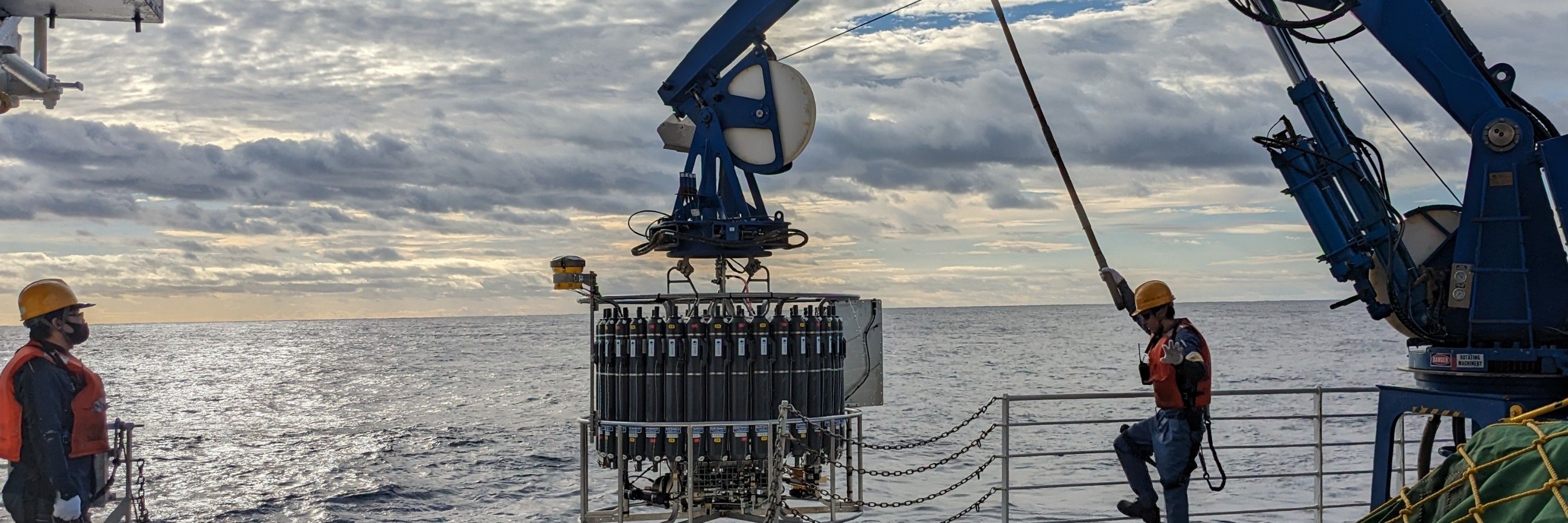
Ocean carbon cycle & climate change
https://scholar.google.co.jp/citations?user=HEtB4eMAAAAJ&hl=en&authuser=1



Read the article atmosphere.copernicus.eu/ozone-hope-2...
#CAMS
Read the article atmosphere.copernicus.eu/ozone-hope-2...
#CAMS

Yasunaka et al. unravelled the exceptional role of climate change for the CO₂ sink in the Arctic Ocean. Here, the accelerated CO₂ uptake is primarily caused by sea ice loss, whereas rising atmospheric CO₂ dominates the trends in all other #RECCAP2 regions.
doi.org/10.1029/2023...
🌊


Yasunaka et al. unravelled the exceptional role of climate change for the CO₂ sink in the Arctic Ocean. Here, the accelerated CO₂ uptake is primarily caused by sea ice loss, whereas rising atmospheric CO₂ dominates the trends in all other #RECCAP2 regions.
doi.org/10.1029/2023...
🌊
Pérez et al. assessed the important CO₂ sink in the Atlantic Ocean. A major fraction of this CO₂ uptake is realised in the subpolar North Atlantic, where models and observation-based estimates still differ substantially with respect to trends and seasonality.
doi.org/10.1029/2023...
🌊


Pérez et al. assessed the important CO₂ sink in the Atlantic Ocean. A major fraction of this CO₂ uptake is realised in the subpolar North Atlantic, where models and observation-based estimates still differ substantially with respect to trends and seasonality.
doi.org/10.1029/2023...
🌊
Rodgers et al. found that the seasonal amplitude of air-sea CO₂ fluxes increased over the past decades. We also show that the surface ocean DIC seasonality in biogeochemical ocean models is lower than in observation-based products. Something to improve…
doi.org/10.1029/2023...
🌊


Rodgers et al. found that the seasonal amplitude of air-sea CO₂ fluxes increased over the past decades. We also show that the surface ocean DIC seasonality in biogeochemical ocean models is lower than in observation-based products. Something to improve…
doi.org/10.1029/2023...
🌊
Hauck et al. found that the Southern Ocean takes up 50% less CO₂ than reported in RECCAP1!
Still, most of the global CO₂ uptake occurs here, calling for a better understanding of trends, seasonality and interior transport of anthropogenic CO₂.
doi.org/10.1029/2023...
@jhauck.bsky.social


Hauck et al. found that the Southern Ocean takes up 50% less CO₂ than reported in RECCAP1!
Still, most of the global CO₂ uptake occurs here, calling for a better understanding of trends, seasonality and interior transport of anthropogenic CO₂.
doi.org/10.1029/2023...
@jhauck.bsky.social
DeVries et al. assessed the Global Ocean Carbon Sink and found that models and fCO2 products agree on the long-term mean uptake of CO2, but recent trends differ by almost a factor of 2, indicating a need to better understand the impact of climate variability.
doi.org/10.1029/2023...
🌊


DeVries et al. assessed the Global Ocean Carbon Sink and found that models and fCO2 products agree on the long-term mean uptake of CO2, but recent trends differ by almost a factor of 2, indicating a need to better understand the impact of climate variability.
doi.org/10.1029/2023...
🌊
Over the past 5 years, 100 oceanographer's from all around the world scrutinised the ocean carbon sink through models and observations.
Our studies have been published in an special issue:
tinyurl.com/RECCAP2-spec...
Starting tomorrow, I'll introduce one paper a day.
🌊

Over the past 5 years, 100 oceanographer's from all around the world scrutinised the ocean carbon sink through models and observations.
Our studies have been published in an special issue:
tinyurl.com/RECCAP2-spec...
Starting tomorrow, I'll introduce one paper a day.
🌊
www.nature.com/articles/s41...

www.nature.com/articles/s41...

